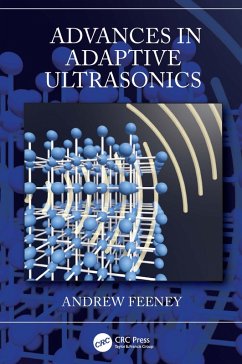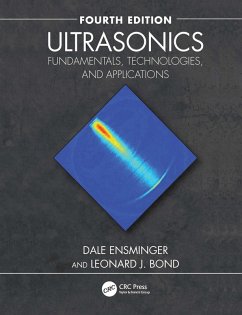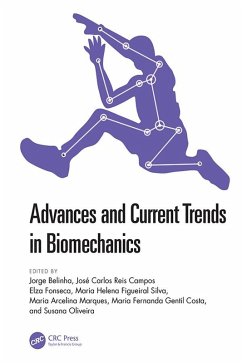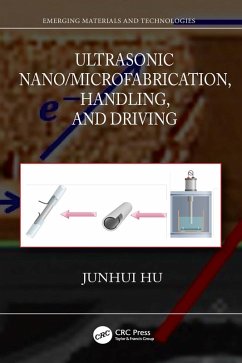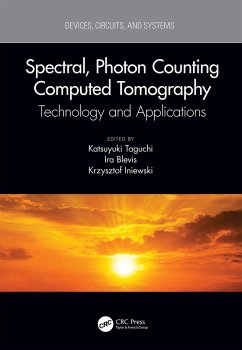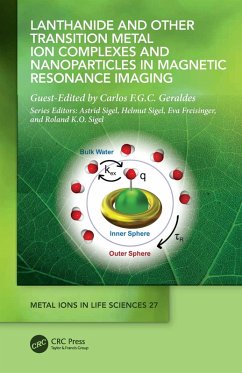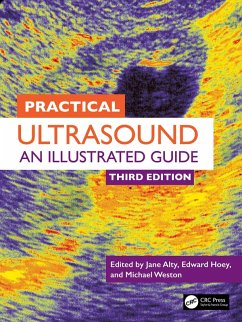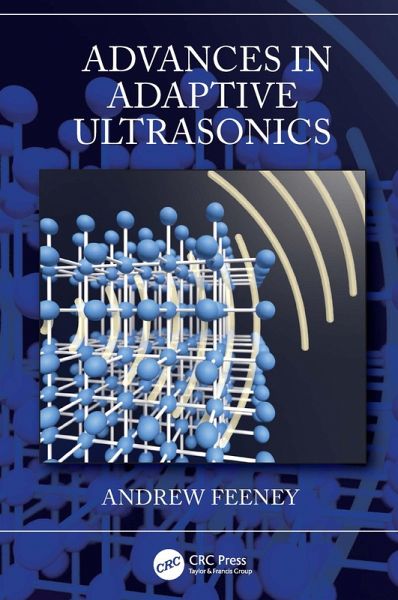
Advances in Adaptive Ultrasonics (eBook, ePUB)
Versandkostenfrei!
Sofort per Download lieferbar
76,95 €
inkl. MwSt.
Weitere Ausgaben:

PAYBACK Punkte
38 °P sammeln!
Providing an overview of a new generation of ultrasonic technology, Advances in Adaptive Ultrasonics explores how ultrasonic devices can harness the properties of advanced materials, including shape memory alloys and metamaterials.The applications of ultrasonic devices range from surgery, drilling, and welding to sonar and energy harvesting. This book demonstrates how engineers can overcome common issues within the field of ultrasonics, such as precision control and choice of materials. Beginning with an overview of ultrasonic technology as it is currently understood, the book goes on to discu...
Providing an overview of a new generation of ultrasonic technology, Advances in Adaptive Ultrasonics explores how ultrasonic devices can harness the properties of advanced materials, including shape memory alloys and metamaterials.
The applications of ultrasonic devices range from surgery, drilling, and welding to sonar and energy harvesting. This book demonstrates how engineers can overcome common issues within the field of ultrasonics, such as precision control and choice of materials. Beginning with an overview of ultrasonic technology as it is currently understood, the book goes on to discuss the newest iteration in the form of adaptive ultrasonics and the benefits this can offer to multiple industries. Key topics include advanced materials, notably phase-transforming shape memory alloys, and the principles of adaptive ultrasonic transducer design. The book also covers measurement approaches for characterising adaptive ultrasonic devices and provides an overview of potential applications for the technology.
This book will be of interest to students and engineers in the field of ultrasonic surgery, industrial engineering, welding, and mechanical materials.
The applications of ultrasonic devices range from surgery, drilling, and welding to sonar and energy harvesting. This book demonstrates how engineers can overcome common issues within the field of ultrasonics, such as precision control and choice of materials. Beginning with an overview of ultrasonic technology as it is currently understood, the book goes on to discuss the newest iteration in the form of adaptive ultrasonics and the benefits this can offer to multiple industries. Key topics include advanced materials, notably phase-transforming shape memory alloys, and the principles of adaptive ultrasonic transducer design. The book also covers measurement approaches for characterising adaptive ultrasonic devices and provides an overview of potential applications for the technology.
This book will be of interest to students and engineers in the field of ultrasonic surgery, industrial engineering, welding, and mechanical materials.
Dieser Download kann aus rechtlichen Gründen nur mit Rechnungsadresse in A, B, BG, CY, CZ, D, DK, EW, E, FIN, F, GR, HR, H, IRL, I, LT, L, LR, M, NL, PL, P, R, S, SLO, SK ausgeliefert werden.




